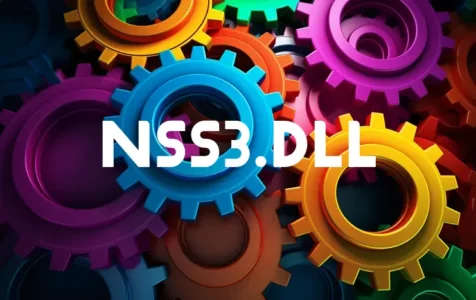What Is NSF3.DLL?
The nss3.dll is a Dynamic Link Library (DLL) file associated with Mozilla Firefox and stands for “Network Security Services.” Developed by Mozilla Foundation, this file is essential for Firefox’s operation as it contains functions related to security protocols like SSL and TLS, which are used to establish secure connections over the internet.
Is It Safe to Run?
Yes, the nss3.dll file is safe to run as it is a legitimate component of the Firefox browser. When sourced correctly, it should not pose any risk to your system. The file is digitally signed by Mozilla Corporation, further verifying its authenticity and integrity.
Could It Be a Virus or Malware?
While nss3.dll itself is not malware, like any file on a Windows system, it can be mimicked or infected by malicious software. Malware authors could create harmful programs with the same name to disguise their activities. If the file is located outside of its standard directory, which is typically ‘c:\Program Files\Mozilla Firefox\’, this could be a sign of malicious activity. To ensure safety, always verify the file’s location and digital signature.
Common Issues Associated with NSF3.DLL
Issues with nss3.dll can arise from various scenarios such as deletion, misplacement, or corruption due to malware. Users may encounter error messages stating that nss3.dll is missing or not found, which can prevent Firefox from functioning correctly. These errors can occur during startup, program launch, or attempt to use a specific function within Firefox.
Expert Tip: For smoother PC performance, consider using a PC optimization tool. It handles junk files, incorrect settings, and harmful apps. Make sure it's right for your system, and always check the EULA and Privacy Policy.
Special offer. About Outbyte, uninstall instructions, EULA, Privacy Policy.
Fixing NSF3.DLL Issues
If you’re facing troubles with nss3.dll, here are some detailed solutions to address the problem:
Method 1: Clean Installation of Firefox
Completely uninstalling Firefox and then performing a fresh installation may resolve the issue. Make sure to download the installer from the official website.
Method 2: Malware Scanning
Run a full system scan using reputable antivirus software to check for and remove any malicious programs that might have modified or masqueraded as the nss3.dll file.
Method 3: Update Device Drivers
Outdated or corrupt device drivers could interfere with DLL files. Update the drivers or use an automatic update tool to ensure that all drivers are current.
Method 4: Windows System File Checker
Utilize the System File Checker (SFC) tool to repair missing or corrupted system files (including nss3.dll).
Method 5: System Restore
If the issue began after a system change, using Windows’ System Restore to revert to a previous state could fix the DLL error.
Method 6: Registry Repair
The Windows registry may become corrupted and link to non-existent versions of DLLs. Scan and repair registry entries related to nss3.dll using a registry cleaner program.
Manual Replacement of NSF3.DLL File
Downloading DLL files from the internet can be risky, so this should only be done from reputable sources if absolutely necessary. Alternatively, extracting the file from a legitimate, existing installation of Firefox on another machine is a safer option. Once you have the file:
– For 64-bit programs, if a 64-bit version of the DLL is available, place the DLL file in ‘C:\Windows\System32’.
– For 32-bit programs, place the 32-bit version of the DLL in ‘C:\Windows\SysWOW64’.
– Register the DLL using the Windows command prompt with ‘regsvr32 nss3.dll’.
Community Discussions
Online communities, such as Reddit and Mozilla’s own forums, have users sharing experiences regarding nss3.dll. Issues range from concerns about the legitimacy of the file to troubleshooting tips for resolving nss3.dll-related errors. Users often learn that a proper version and architecture match between Firefox and the system’s Python installation is crucial. If the DLL’s architecture (32-bit or 64-bit) doesn’t match the application’s architecture, issues can arise, as revealed in one user’s experience when running a Python program that interacts with Firefox.
Always be cautious when following advice from forums and check that the steps are appropriate for your system and situation. It is recommended to seek assistance from qualified tech specialists if you are uncertain.
Remember, directly downloading DLL files from websites can be unsafe and is not recommended. It’s important to exhaust all other troubleshooting methods first and only download DLLs from trusted sources.
